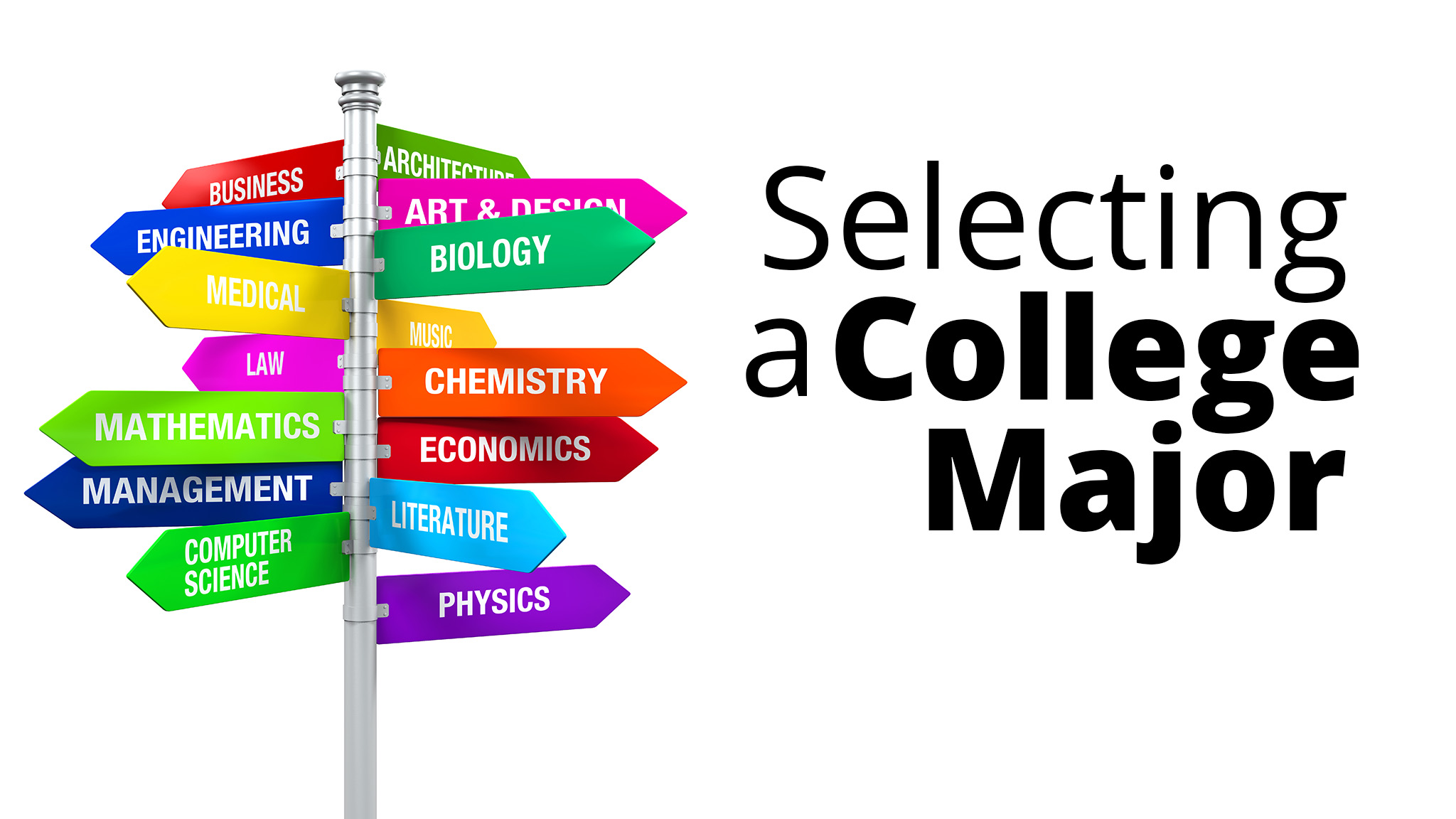How to choose a degree program that aligns with career goals? It’s a question that echoes in the minds of countless students, a crossroads where academic pursuit meets professional aspiration. Choosing the right degree isn’t just about picking a major; it’s about strategically investing in your future, laying the foundation for a fulfilling and successful career. This guide navigates you through the process, helping you make an informed decision that sets you up for success.
From understanding your personal career aspirations and researching potential degree programs to assessing program suitability and exploring financial aid options, we’ll cover every step. We’ll delve into practical strategies for researching universities, connecting with professionals in your field, and even budgeting for your education. By the end, you’ll have a clear roadmap to guide you towards a degree that truly aligns with your career goals.
Understanding Your Career Goals
Choosing a degree program without a clear understanding of your career aspirations is like navigating a maze blindfolded. A well-defined career path provides the necessary direction and motivation to successfully complete your studies and transition into a fulfilling profession. This section will guide you through the process of self-reflection needed to align your academic pursuits with your future ambitions.
Before diving into specific degree programs, it’s crucial to visualize your ideal professional life. This involves more than just a job title; it’s about crafting a picture of your daily tasks, responsibilities, and overall work satisfaction. Consider not only the monetary compensation but also the intrinsic rewards and challenges the work presents.
Choosing a degree program that aligns with your career goals requires careful self-reflection and research. Consider your interests, skills, and the job market outlook before making a decision. However, many programs are now offered online, so mastering best practices for online learning and virtual classroom engagement is crucial for success. This will ultimately help you navigate your chosen degree program effectively and achieve your career aspirations.
Ideal Career in Five Years
Imagine yourself five years from now. Where are you working? What are you doing on a typical workday? For example, a recent graduate might envision themselves as a Marketing Manager at a tech startup, leading a team, developing innovative campaigns, and presenting strategies to senior executives. Another might see themselves as a freelance graphic designer, working remotely on diverse projects for various clients, setting their own hours and deadlines.
The key is to create a vivid and detailed picture of your desired professional reality.
Essential Skills for Career Success
Once you have a clear vision of your ideal career, identify the three most critical skills needed to excel in that role. These skills can be technical (e.g., coding, data analysis, project management) or soft skills (e.g., communication, teamwork, problem-solving). For instance, a prospective Marketing Manager needs strong analytical skills to interpret data, excellent communication skills to present findings persuasively, and project management skills to execute marketing campaigns effectively.
A freelance graphic designer would require proficiency in design software, strong communication skills to manage client relationships, and creative problem-solving abilities to meet diverse design briefs.
Preferred Work Environment, How to choose a degree program that aligns with career goals
Reflect on your preferred work style and environment. Do you thrive in a collaborative setting, bouncing ideas off colleagues and working as part of a team? Or do you prefer independent work, allowing for focused concentration and self-directed projects? Consider the pace of work; do you prefer a fast-paced, dynamic environment or a more structured, methodical approach? Understanding your preferred work style will help you identify workplaces and degree programs that are a good fit for your personality and working preferences.
For example, a fast-paced newsroom might suit someone who thrives in a high-pressure, deadline-driven environment, while a research laboratory might be ideal for someone who prefers a more independent, methodical approach to their work.
Personal Values and Career Fulfillment
Your personal values play a crucial role in career satisfaction. Consider what’s important to you – creativity, social impact, financial security, intellectual stimulation, work-life balance, etc. How do these values align with your chosen career path? For example, someone who values social impact might pursue a career in non-profit management or environmental conservation. Someone who prioritizes creativity might choose a career in the arts or design.
Aligning your career with your values increases the likelihood of long-term job satisfaction and fulfillment.
Assessing Program Suitability

Choosing the right degree program is a crucial step towards achieving your career aspirations. It’s not just about picking a subject you enjoy; it’s about aligning your academic pursuits with your professional goals, considering factors like job market demand and potential earnings. This involves a thorough assessment of each program you’re considering.After identifying potential degree programs aligned with your career goals, a comprehensive evaluation is necessary.
This involves a detailed comparison of the pros and cons of each program, a realistic projection of potential salaries and job market trends, and a clear understanding of how the skills gained will translate into your desired career path.
Program Pros and Cons
A balanced perspective requires considering both the advantages and disadvantages of each program. For example, a Master’s in Data Science might offer high earning potential but demands significant upfront investment in time and resources. Conversely, a Bachelor’s degree in Business Administration may offer a broader range of career options but potentially lower starting salaries compared to specialized fields. Carefully weigh these factors against your personal circumstances and long-term goals.
Consider factors like program length, required coursework, teaching methods, and available resources.
Salary Expectations and Job Market Outlook
Researching salary ranges and job market forecasts for graduates of each program is essential. Websites like the Bureau of Labor Statistics (BLS) in the US, or equivalent national statistical agencies in other countries, provide valuable data. For example, the BLS might indicate a strong growth outlook for software engineers, with a median salary exceeding $100,000, while the job market for librarians might show slower growth and a lower median salary.
Understanding these trends helps you make informed decisions about your investment in education. Remember that these are averages, and actual salaries can vary based on experience, location, and employer.
Skill Alignment
Analyze the curriculum of each program and identify the specific skills you will acquire. Then, compare these skills to the skills required for your target career. For instance, if your goal is to become a marketing manager, a degree in marketing will likely equip you with essential skills such as market research, advertising campaign development, and brand management.
A degree in communications might offer some overlap but may not provide the specialized knowledge in marketing strategies. This detailed comparison ensures that your education directly supports your career ambitions.
Questions for Current Students and Alumni
Gathering firsthand information from those who have already completed or are currently enrolled in the programs is invaluable. The insights you gain can provide a more realistic picture than solely relying on program brochures.Prepare a list of questions focusing on practical aspects of the program, such as:
- What was the most challenging aspect of the program?
- What resources or support systems were available to students?
- How effectively did the program prepare you for your current role?
- What advice would you give to prospective students?
- What is the typical job search process for graduates of this program?
Reaching out to current students and alumni via university networks or professional platforms like LinkedIn can yield valuable perspectives and help you make a well-informed decision.
Exploring Educational Resources

Choosing the right degree program requires thorough research. Don’t rely solely on gut feeling; leverage the wealth of information available online to make an informed decision. Effective research will significantly increase your chances of selecting a program that aligns with your career aspirations and sets you up for success.This section will guide you through effectively using online resources to gather crucial information about degree programs and organize your findings for easy comparison.
We’ll explore credible sources and highlight the importance of accreditation and program reputation.
Utilizing Online Resources for Program Information
University websites are your primary source of information. Each university will have a dedicated section outlining their degree programs, including curriculum details, faculty profiles, admission requirements, and career services. Beyond the university’s own site, career databases like those offered by the Bureau of Labor Statistics (BLS) and O*NET provide detailed occupational information, including education requirements and salary expectations.
These resources often link directly to relevant degree programs offered at various institutions. Utilize search engines effectively, focusing on s related to your chosen career path and desired degree type. For example, searching “Master’s in Data Science program requirements” will yield much more relevant results than a general search for “Data Science.”
Organizing Research Findings
Once you’ve gathered information from multiple sources, organizing your findings is key. A structured approach will allow for easy comparison and informed decision-making. Consider using a table to compare programs. For instance, create columns for university name, program name, program length, tuition fees, accreditation status, career services offered, and average starting salary of graduates. Each row would represent a different program you’re considering.
Alternatively, a bulleted list for each program, highlighting key aspects like curriculum highlights, faculty expertise, and internship opportunities, can also be effective. This organized approach will make identifying the best fit for your goals much easier.
Credible Sources for Research
Reliable sources are essential for making informed decisions. The U.S. Department of Education’s website provides information on accreditation and program quality. Professional organizations related to your chosen field often offer career guides and resources. For example, the American Medical Association (AMA) provides extensive information for aspiring physicians, while the American Bar Association (ABA) offers similar resources for those interested in law.
Choosing a degree program that aligns with your career goals requires careful self-reflection. However, the journey isn’t always smooth; many students struggle with self-doubt, and it’s crucial to address this by learning how to overcome imposter syndrome and building confidence in academic settings, as discussed in this helpful article: overcoming imposter syndrome and building confidence in academic settings.
By building your confidence, you’ll be better equipped to make informed decisions about your academic path and ultimately achieve your career aspirations.
University rankings, while subjective, can provide a general overview of program reputation and research output. However, remember to consider these rankings alongside other factors when making your final decision. Always cross-reference information from multiple reputable sources to ensure accuracy and avoid bias.
Accreditation and Program Reputation
Considering accreditation and program reputation is paramount. Accreditation ensures a program meets certain quality standards, increasing the likelihood of recognition and acceptance of your degree by employers. Look for programs accredited by recognized bodies within your field. Program reputation, often reflected in graduate employment rates and alumni achievements, indicates the program’s effectiveness in preparing students for successful careers.
Websites like US News & World Report offer rankings of universities and programs, but these should be viewed as one factor among many, not the sole determinant of program quality. Thoroughly research the faculty, their publications, and their involvement in relevant research to assess the overall quality and reputation of the program.
Financial Considerations and Planning

Choosing a degree program isn’t just about career aspirations; it’s a significant financial investment. Understanding the costs involved and exploring funding options is crucial for making an informed decision and avoiding crippling debt. This section will break down the financial aspects of higher education, helping you navigate the complexities and plan effectively.Funding your higher education requires careful consideration of various avenues.
Securing financial aid can significantly reduce the burden of tuition and living expenses, making your chosen program more attainable.
Funding Options for Higher Education
Several avenues exist to finance your education. These include scholarships, loans, and grants, each with its own eligibility criteria and repayment terms. Scholarships are typically merit-based awards that don’t require repayment. Loans, on the other hand, require repayment with interest after graduation, while grants are usually need-based and don’t need to be repaid. Exploring all available options is vital to maximizing your financial aid.
Cost Breakdown of Degree Programs
The cost of a degree program varies significantly depending on the institution, program length, and location. Tuition fees represent a major portion of the cost, varying from affordable community colleges to expensive private universities. Additional fees may include technology fees, lab fees, and student activity fees. Living expenses, including accommodation, food, transportation, and books, also significantly contribute to the overall cost.
For example, a four-year program at a private university in a major city could easily exceed $200,000, whereas a similar program at a state university in a smaller town might cost around $80,000.
Budgeting for Your Education
Creating a comprehensive budget is essential for managing your educational expenses. This involves estimating all costs—tuition, fees, living expenses, books, and transportation—and comparing them to your available funding sources. A realistic budget should account for unexpected expenses and potential shortfalls. For instance, a sample budget might allocate 50% for tuition, 30% for living expenses, and 20% for books and miscellaneous costs.
Regularly reviewing and adjusting your budget throughout your education is crucial to staying on track.
Return on Investment (ROI) for Degree Programs
The ROI of a degree program refers to the financial benefits you receive in relation to the costs incurred. This is typically calculated by comparing your post-graduation earnings to the total cost of your education. High-demand fields like engineering, medicine, and technology generally offer higher ROIs, while some humanities degrees may have longer payback periods. It’s important to research salary expectations for your chosen field and factor this into your financial planning.
For example, a medical degree, while expensive, often leads to significantly higher earning potential, resulting in a strong ROI over time. Conversely, a degree in the arts might offer a lower immediate return but could still lead to fulfilling career paths.
Networking and Mentorship: How To Choose A Degree Program That Aligns With Career Goals
Choosing a degree program is just the first step towards a fulfilling career. Building a strong professional network and securing mentorship are crucial for navigating the complexities of your chosen field and achieving your career aspirations. These elements provide invaluable support, guidance, and opportunities that textbooks simply can’t offer.Networking with professionals in your target field offers a wealth of benefits beyond simply adding contacts to your LinkedIn profile.
It provides access to insider knowledge, unadvertised job opportunities, and diverse perspectives on career paths. Furthermore, these connections can offer crucial feedback on your skills and help you refine your career trajectory. Mentorship, a more focused form of networking, provides personalized guidance and support from experienced professionals, acting as a compass to navigate career challenges and accelerate professional growth.
Identifying and Approaching Potential Mentors
Finding the right mentor requires proactive effort and strategic planning. Begin by identifying professionals who have achieved success in your desired field. This could involve researching individuals within your university’s alumni network, attending industry events, or leveraging online professional platforms like LinkedIn. Once you’ve identified potential mentors, research their background and accomplishments to understand their expertise and approach. A well-crafted introductory email or a brief, in-person conversation expressing your admiration for their work and outlining your career goals is an effective approach.
Remember to be respectful of their time and clearly articulate what you hope to gain from a mentorship relationship. Proposing specific, achievable goals for the mentorship will demonstrate your seriousness and commitment.
Effective Networking Strategies
Building a robust professional network involves consistent effort and strategic engagement. Attending industry conferences and workshops provides opportunities to meet professionals, learn about current trends, and expand your knowledge base. Actively participating in discussions, asking insightful questions, and exchanging business cards are essential components of successful networking. Online platforms like LinkedIn offer a virtual space for connecting with professionals, joining relevant groups, and participating in online discussions.
Engaging with thought leaders’ posts and sharing your own insights can enhance your online visibility and attract potential connections. Remember that networking is a two-way street; offering help and support to others strengthens your network and fosters reciprocal relationships. For example, offering to help a colleague with a project or connecting two individuals who could benefit from each other’s expertise builds strong professional bonds.
Mentorship’s Contribution to Career Success
A strong mentor-mentee relationship can significantly contribute to career success. Mentors provide personalized guidance based on their own experiences, offering valuable insights into navigating career challenges, developing crucial skills, and making informed career decisions. They can offer advice on everything from job searching and interview techniques to negotiating salaries and managing workplace dynamics. Beyond practical advice, mentors provide crucial emotional support and encouragement, helping mentees overcome setbacks and maintain motivation.
A successful mentorship fosters a sense of belonging and accelerates professional growth by providing a trusted sounding board for ideas, challenges, and aspirations. For instance, a mentor might help a mentee identify and overcome unconscious biases hindering their career progression, or guide them through a difficult negotiation with a potential employer. This personalized support can significantly shorten the learning curve and accelerate career advancement.